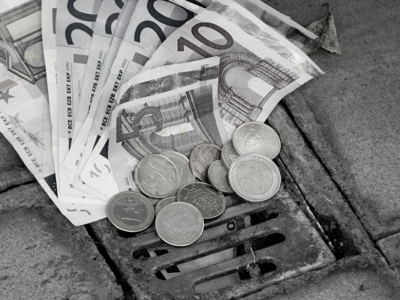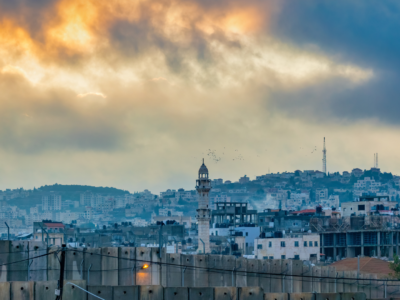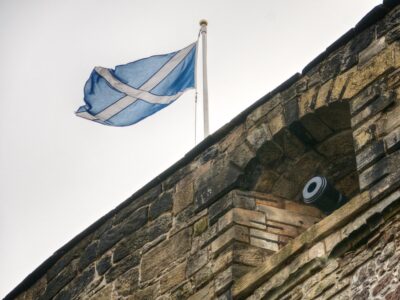Algeria and Morocco: The New Divorce of Intimate Enemies

18/11/2021
Algerian Foreign Minister Ramtane Lamamra announced on August 24, 2021 the breaking of diplomatic relations with the Kingdom of Morocco. The conclusion to a succession of disagreements and cross-provocations acquired renewed intensity after the normalization of relations between Rabat and Tel Aviv in December 2020. On July 31, on the occasion of the Feast of the Throne, the Moroccan monarch Mohammed VI stated that “Algeria should not fear any malice from Morocco,” extending his hand to the neighboring country. However, the statements previously made by Omar Hilale, the permanent representative of Morocco to the United Nations, who at a meeting of the Non-Aligned Movement on 13 and 14 July stated that “more than any other, the brave people of Kabylia deserve to fully enjoy their right to self-determination” generated a much greater impact. In the eyes of Algerian Minister Lamamra, “the Moroccan provocation has reached its climax.”
In retaliation for Algerian support for the Polisario Front, Morocco demonstrates its support for the Movement for the Self-Determination of Kabylia (MAK, in its acronym in French). Algiers reprimands Rabat for its alleged support for the Rachad Movement, which, like the MAK, is considered a “terrorist” organization by the Algerian authorities, accusing them of being the perpetrators of the great forest fires of the summer, which ended with ninety dead. In parallel, Algiers has stepped up border security controls in the west while calling for clarification by Morocco on Omar Hilale’s statements. Officially, Rabat neither affirms nor refutes. The only mentions come from media and unofficial actors who depend on well-identified service slogans and who do not cease to feed the controversy. There are many messages of support for the MAK, which is gaining unprecedented visibility in Morocco, as is its president Meheni, exiled in France and who is the protagonist of press conferences and interviews in which he does not hesitate to thank the king for his help.
The official Moroccan reaction did not come until the Algerian announcement of the diplomatic rupture. The Moroccan Ministry of Foreign Affairs issued a statement that regretted the decision, calling it “completely unjustified.” Rabat took advantage of the statement to present itself as a “credible and loyal” partner for the Algerian people, attempting to make a clear difference between the government and its citizens. The Moroccan Foreign Minister stated that he will continue to act with “wisdom and responsibility for the development of healthy and fruitful inter-Maghreb relations”. On the Moroccan side, the drift is presented as a parenthesis “in the construction of the Union of the Arab Maghreb (UMA) and the return to normalcy,” as stated by the president, the Islamist Saadeddine Othmani.
Rabat has taken the opportunity to address the EU and the United States, but also Israel, claiming that its position embodies reason and weight in the region against an Algeria that it insinuates is unreliable. In addition, the Moroccan authorities, either through official or unofficial channels, are trying to allay fears of a possible military escalation and its effects.
Such an escalation could significantly impact the supply of gas to European countries through the Maghreb-Europe Gas Pipeline (GME), which has been providing the European continent since 1996 through Morocco, from the Hasi R’Mel fields in the Algerian Sahara. Furthermore, Rabat has recovered a project of 2016, which is none other than the Nigeria-Morocco gas pipeline, whose feasibility studies have been completed and the construction of which the Nigerian National Petroleum Corporation (NNPC) wants to start. However, its funding has not yet been resolved.
Historical animosity
Relations between Algeria and Morocco have historically been strained. They are the two most important countries in the Maghreb and are vying for preeminence in the region. For the leadership of both countries, the framing of the neighboring country as an enemy has been played as a means to consolidate their own regimes at home, bolstering nationalism to secure internal cohesion.
Good proof of this was the so-called “Sand War” of 1963-64, barely a year after Algerian independence, to delimit the lines of the Saharan borders. From 1975 onwards the dispute for leadership in the region crystallized around the Western Sahara conflict, precipitating the rupture of diplomatic relations between 1976 and 1988. In 1994 the rivalry was still alive and Dris Basri, the strongman of the Moroccan regime, in his capacity as interior minister, accused the Algerian secret services of being behind the terrorist attack at the Atlas-Asni Hotel in Marrakech. Basri began a campaign to expel Algerians in an irregular situation in Moroccan territory and established a visa system to enter Morocco. Shortly afterward Algeria proceeded to close the land borders, which is still in force.
Seeking to end the dynamic of rupture, in 1999 Abdelasis Bouteflika made the gesture of attending the funeral of Hassan II. The president then evoked the advantages of a united Maghreb, free of conflicts, and called for an approach that was necessary for the region’s development. Nevertheless, Bouteflika, made head of state by the military, was unable to break away from the traditional positions of the Algerian state and did not cease to regularly assert his country’s support for Saharawi self-determination, provoking the suspicions of the Moroccans. On the sidelines of an Arab League summit held in Algiers, Bouteflika met with Mohammad VI. The reunion was intended to be the start of an opening of relations. However, Bouteflika’s reaffirmation of his support for the Saharawi cause on the occasion of the Polisario Front’s anniversary precipitated a statement from the Moroccan Ministry of Foreign Affairs labeling the visit scheduled for 21 and 22 June 2005 by Algerian Prime Minister Ahmed Uyahia “inappropriate”. Since then, no other Algerian head of government has put a foot on the neighbor’s ground. Their rivalry lives on, tensions escalate, and confrontation emerges cyclically.
In October 2017, Rabat called for consultations with its ambassador to Algeria to protest against statements made by the then head of Algerian diplomacy, Abdelkader Mesahel, who accused Morocco of being a “drug-trafficking state.” In May 2020, in a meeting with compatriots, the Moroccan consul in Oran did not hesitate to say he was in “an enemy country.” The reaction was immediate. The Ministry of Foreign Affairs summoned the Moroccan ambassador to Algiers, and the consul was accused of being a Moroccan intelligence agent, and he had to return to Rabat.
In October of that year, the Moroccan army carried out an operation to disperse elements of the Polisario in Guerguerat, the buffer zone of Western Sahara between the south of the territory and Mauritania essential for trade between Morocco and West Africa. The Polisario was accused of blocking the transit of passengers and merchandise. The Sahrawi self-determination movement responded by announcing the rupture of the ceasefire signed in 1991 and the resumption of hostilities. The tension lasted for weeks, with cross-firing between elements of the Royal Armed Forces (FAR) and the Sahrawi independence militants.
As a result of the rivalry in Western Sahara, the two states maintain an arms race. On the Algerian side, the building up of military capabilities has been a constant since the country’s independence. On the Moroccan side, the increase in military spending has sharpened in recent years. In 2020 alone, the military budget increased by 30% over the previous year, which had already been substantially higher than the year before in the context of a marked economic and social crisis. Rabat’s expenditure has exceeded 50 billion dirhams (4.6 billion euros), justified by the adaptation and modernization of military equipment for the defense of territorial integrity, in reference to the Sahrawi conflict, and in the face of a possible Algerian attack. In particular, although Algeria has a larger arsenal – which includes weapons of Russian, Chinese, Indian, and even French origin – Morocco is equipped with equipment that is not within reach of its neighbor. That is the case of American tanks and fighters equipped with Israeli technology, which are much more advanced. In recent times, the arms race has also incorporated missile-equipped combat drones of Turkish and American origin capable of locating and attacking targets and returning to base.
Wars for regional influence.
In the Libyan conflict, hostilities between Rabat and Algiers became evident at the African Union (AU) summit in February 2021. Algeria hoped that a South African presidency would offer greater options for Libya after an Egyptian presidency that had neutralized any initiative to tackle the matter. Tebún defended the holding of an inter-Libyan reconciliation conference in Algeria, but Rabat argued that the legitimacy of Libyan institutions must prevail, ruining the Algerian initiative. Morocco presented the 2015 Skhirat Accords, which allowed the emergence of a government of national unity. Rabat tried for months to reactivate the process by hosting delegations of the Libyan House of Representatives and the High Council of State in Buznika, just 12 kilometers from Skhirat, between August and September 2020.
The resignation in March of Ghassan Salamé, the UN special envoy for Libya, offered a new opportunity and Algiers activated its diplomatic networks to place Lamamra in place of the Lebanese. The Algerian, well connected in the AU, got the approval of his appointment from French President Emmanuel Macron and the UN Secretary-General Antonio Guterres. In concert with the United Arab Emirates, which did not want an Algerian lead either, Morocco managed to stop Lamamra’s nomination. The position was taken by the American Stephanie Williams.
Moha Uali Tagma, the ambassador of Morocco to Abuja and to the Economic Community of West African States (ECOWAS), was appointed by the OIF delegation to support the process of restoration of democratic institutions in Mali. Morocco has been unwilling to cede ground to Algeria, which is flexing its diplomatic muscle to assert its role in the region. Algiers insisted that the Algiers Agreements of 2015 were the right framework to end the political crisis in Mali, especially since their roadmap has not been respected.
Morocco on the other hand stakes on a “smooth transition” in Mali. Before the coup, it attempted to mediate between then-President Ibrahim Boubacar Keita, very close to Rabat, and tycoon Mahmud Dicko, the figurehead of a heterogeneous opposition: “We saw that political and social tensions were intensifying (…) considering the need to reinvent past arrangements that had reached their limits,” Burita said in a direct attack on the Algiers agreements.
Israel’s African strategy
In return for the US recognition of Moroccan sovereignty over Western Sahara, Morocco has normalized its relations with Israel, which further distorts the relationship between the two major states of the Maghreb. The support penalizes the Algerian misstep of having supported the Polisario Front since 1975. While the Biden administration has not ratified Donald Trump’s recognition of Morocco’s sovereignty over Western Sahara, and the EU remains eloquently silent on the issue, in Algiers more and more people believe that it is a matter of time before Morocco sees its sovereignty demands met to the detriment of the resolution of the conflict within the framework of the United Nations. On the other hand, Algeria already has few cards to pressure its neighbor. But now, Morocco’s grasp transcends the Maghreb as a framework for action and aspires to continental leadership, and normalization of relations with Israel puts the means to succeed in those ambitions within its reach.
Contributing to Israel regaining its observer status within the AU, lost in 2002, Morocco shows its influence and ability to mobilize support in the pan-African camp, despite Algeria maneuvering in the opposite direction, reminding member countries that the AU has always supported the Palestinian cause. For Tel Aviv, this milestone is the first step in strategic deployment on the continent, particularly in West Africa, where Moroccan influence is most important. In return, Morocco hopes to benefit from major Israeli investors, have Tel Aviv’s networks of influence to defend its interests on a global scale, and intensify security cooperation, although it already discreetly existed, as evidenced by the revelations about the use by Morocco of the Pegasus spyware, produced by the Israeli NSO Group, which allowed Rabat to monitor up to 6,000 phone numbers, including those of first-ranking actors in the Algerian regime.
While not forgetting that Mohamed VI is the chairman of the Al Quds Committee in Jerusalem, justifying his options beyond defending the Sahrawi issue, Morocco argues that normalization has opened up the possibility of influencing Israeli policy orientations when meeting with the Palestinians. However, it has become clear that Israel is in no way willing to change such a policy, and after opening a liaison office in Rabat, Israel has decided not to open a consulate in Western Sahara despite the efforts of Moroccan diplomacy, nor has the United States, which continues to proclaim the need to resolve the conflict through consensus between the interested parties under the auspices of the United Nations. Determined to maintain its Palestinian policy without being fully involved in the Sahrawi issue, Israel does seem more willing to help Rabat against the Algerian threat. During a visit to Rabat on August 13, 2021, Israeli Foreign Minister Yair Lapid stated in the presence of his Moroccan counterpart, Naser Burita, his concern about the “role played by Algeria in the region, the Algiers’ rapprochement with Iran and Algiers’ campaign against the admission of Israel as an observer member of the AU”.
Economic impact and mediation
Catalonia could suffer the economic impact of the rupture. Algeria closed the GME gas pipeline to Europe on October 31, 2021. Gas still goes through the Medgaz pipeline, directly connecting Algeria and Spain through Almeria. The Algerian Minister of Energy Mohammad Arkab hinted that the three-way agreement on the GME pipeline that allows gas to reach the Iberian Peninsula would not be renewed. Algiers is determined to punish Morocco, as Rabat receives a toll of 7% of the value of the gas exported through this route, although that does not mean that the agreement cannot be renewed later. In 2019, the figure did not reach 50 million euros because of the fall in the price of hydrocarbons, but in 2014 the amount was close to 200 million euros. In addition, GME provides 45% of demand for gas in Morocco at below market price, which serves thermal plants to generate 12% of the kingdom’s electricity.
Algeria is also hurt by the non-renewal of the GME agreement. Its overland export capacity will be reduced from 16.7 billion cubic meters per year to 8,000, and then to 10,000, from January, counting on an increase of the capacities of the Medgaz. Algeria exported 9 billion cubic meters to Spain in 2020, and it is estimated that 60% of this volume passed through Medgaz and 40% through GME. In principle, the Spains has infrastructure that allows it to diversify regarding natural gas supply, on which 17% of the electricity generated depends, but costs will continue to rise, directly affecting Catalonia, for both consumers and industry.
Since the announcement of Algeria’s decision to sever ties with Morocco, calls for dialogue and agreement between neighbors have multiplied, first from the Arab world. The United Arab Emirates Minister Cheik Abdullah Bin Zayed Al Nayan has issued a statement urging progress towards “positive Arab relations” that serve the development of the interests and prosperity of its people. The Organization of the Islamic Conference (OIC) and the Arab League have spoken along the same lines, as has Saudi Arabia, which has adopted a conciliatory tone, and Tripoli invites Algiers and Rabat to embrace “the common principles and goals that have led to the creation of the UMA”.
The Spanish Foreign Minister, José Manuel Albares, has visited Algeria to try to bring them closer to Morocco, although there is no denying the fact that the visit has been on economic issues, seeking to guarantee the supply of gas for Spain, and with the confrontation with Rabat on the admittance of Polisario leader Brahim Ghali into hospital still festering. France has also called on Algeria and Morocco to return to dialogue in the interest of the stability of the region. However, Paris is going through an unprecedented diplomatic crisis in the Maghreb and is the object of condemnation by both. The EU has called on both countries to find a “diplomatic and lasting solution”, volunteering to intervene in the controversy.
The ruling of the EU Court of Justice (ECJ) of September 29, 2021 in favor of the Polisario, ordering the annulment of trade and fisheries agreements between Morocco and the EU, has weighed on the options for Brussels to play a leading role. Catalonia maintains a historic and close relationship with both states and their respective societies, and the rupture affects the Mediterranean region. Barcelona should bear in mind its own interests, but given the discredit and inefficiency of traditional actors in mediation, it could explore playing the role of a neutral mediator in the crisis.
David Alvarado holds a PhD in political science from the University of Santiago de Compostela specialising in North Africa and Sahel. Currently he works as consultant in strategy, public affairs, lobbying and in communications. He has taught at several universities and has contributed to several think tanks such as IGADI, CEID, CSIS, and Cato Institute.
The opinions expressed in this publication are those of the authors. They do not purport to reflect the opinions or views of the CGI or its contributors. The designations employed in this publication and the presentation of material therein do not imply the expression of any opinion whatsoever on the part of the CGI concerning the legal status of any country, area or territory or of its authorities, or concerning the delimitation of its frontiers.


